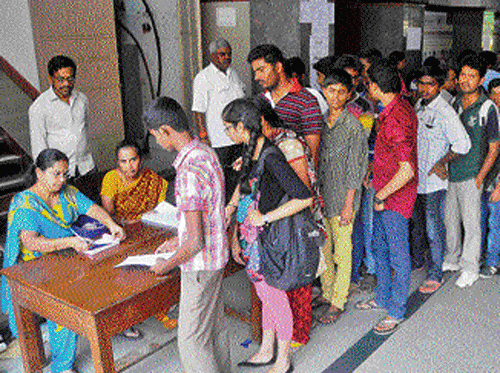
Technical and engineering colleges in Karnataka have been discontinuing 20-30 courses every year since 2012-13. In all, 135 courses were shut down in the last five years. The trend reflects declining demand for engineering education.
This year, a prestigious institute likes RV College of Engineering shut down two courses in the architecture stream: BArch (Town Planning) and MArch (Urban Design).
In all, at least 25 courses have been discontinued this academic year, 19 of them are undergraduate and postgraduate engineering programmes, according to the All India Council for Technical Education (AICTE). This year, Dr P G Halakatti College of Engineering and Technology, Vijayapura, discontinued three BE courses: civil, mechanical, and electrical and electronics engineering. It also discontinued MCA programmes.
The interest for engineering courses has plummeted over the last few years. A point to note is that many courses that were closed down are not very popular, such as Instrumentation Technology and Environmental Engineering.
In 2015-16, the situation was equally grim for engineering courses. A total of 29 courses were shut down that year; 25 of them at undergraduate, postgraduate and diploma levels. Ten of these courses were shut down by engineering colleges in Bengaluru itself.
For example, Nagarjuna College of Engineering and Technology, Devanahalli, shut down four courses: two BE courses in civil and mechanical engineering, and two programmes at the postgraduate level.
Similarly, as many as 23 courses were shut down in 2014-15; 20 of them in engineering streams at undergraduate, postgraduate or diploma levels. In 2013-14, 28 courses were shut down, most of them at the undergraduate engineering level. In 2012-13, as many as 30 courses, mostly belonging to diploma in engineering, were shut down.
Karan Kumar H, a member of Visvesvaraya Technological University’s (VTU) executive council, attributed the trend of closing down the courses to demand-supply mismatch and a lack of awareness.
“First of all, there are too many engineering colleges in the state. On average, only 65-70% of the seats in these colleges get filled. There is also a lack of awareness about niche courses that may have a different reach,” he said.
DH News Service